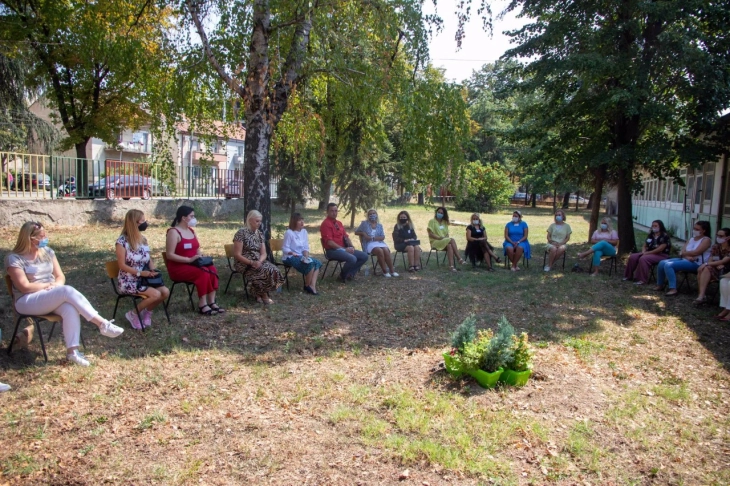Special education assistants undergo training ahead of start of new school year

Skopje, 17 August 2021 (MIA) - From the beginning of the 2021/2022 school year, 500 state-funded special education assistants will be included in the teaching process in every elementary school in North Macedonia that has reported having students with atypical development. Selected candidates are undergoing intensive training after the Ministry of Education and Science (MoE) has published calls. The assistants will support the teachers throughout the school year, and their role will be to coordinate and adapt the curriculum according to the needs of the students with special needs.
Five resource centers, namely “Zlatan Sremec” and “Idnina” in Skopje, “Kliment Ohridski” in Novo Selo, “Maca Gjorgieva Ovcharova” in Veles, and the “Kocho Racin” institute for rehabilitation of children with impaired hearing, speech, voice and other developmental issues in Bitola, will be at disposal of all elementary schools to support them in their work with students with atypical development.
Minister of Education and Science Mila Carovska on Tuesday visited an elementary school with the “Idnina” resource center in the Skopje municipality of Chair, where 130 special education assistants from the capital and the northeast part of the country are being trained. They will be employed at this resource center, and another 130 will be hire by the “Zlatan Sremec” center. The other three resource center will employ 80 assistants each.
“Special education assistance is crucial for quality, inclusive education. 500 assistants are receiving intensive training about the best ways to achieve high quality teaching for children with atypical development as well as for children with typical development, because education assistance means integrating the students, following a joint program and expecting the same results for the first time. Unlike before, when we had assistants focusing only on one child with atypical development, the classroom was segregated, in a way. This way, we enable the children to learn from one another. An inclusive society is not solely built through laws, it has to be done in the education system as well. This is the first time we’re trying this, and it’s important for the assistants and teachers to adapt to each other and cooperate,” said Carovska.
The assistants will receive a salary of MKD 24,000. MKD 59 million have been set aside from the MoE’s budget, as well as an additional MKD 2.5 million to get assistive technology and didactical equipment.
“Idnina”’s principal Loreta Andreevska stated that the training of the 130 candidates is done through a combined method of online classes and in-person glasses in smaller groups within the school, according to the healthcare protocols.
“The assistants will support the teacher in the realization of the curriculum and the inclusion of 1-3 students with special needs. They will also support every other student in the class,” Andreevska said.
According to the new Law on Elementary Education, special elementary schools are being transformed into resource centers and they’re expanding their line of work, therefore, they will provide resource services and inclusive education support alongside the educational process.
The addition of educational assistants is a response to the requests and needs that the parents of special needs children have had for years, who have had to find their own assistants and pay them out of pocket. According to the MoE’s estimates, 500 are enough to service all needs, but this number can increase in the future if needed. dk/ba/







